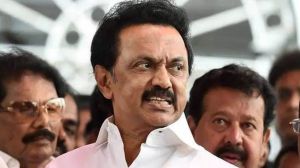Aiyar146;s peace pipe
Union Petroleum Minister Mani Shankar Aiyar has done the impossible in liberating India8217;s regional energy diplomacy from the clutches o...

Union Petroleum Minister Mani Shankar Aiyar has done the impossible in liberating India8217;s regional energy diplomacy from the clutches of an obdurate bureaucracy. Strategic imagination in New Delhi on building energy pipelines in the subcontinent has long been overdue. The government8217;s decision on Wednesday to allow negotiations on natural gas pipelines with all the key neighbours 8212; Iran, Afghanistan and Pakistan in the west and Bangladesh and Myanmar in the east 8212; could help generate shared prosperity in the subcontinent.
For years now, different parts of the government had tied Indian policy on energy cooperation with the neighbours into knots. Security agencies questioned the safety and reliability of energy supplies through Pakistan. The Foreign Office, in turn, set up counter-productive linkages between Indian support to the pipelines and the overall political relationship with Pakistan and Bangladesh. Stalemate followed as India kept moving the goal-posts. For a while the Indian establishment pretended that under-water pipelines might be more effective than overland ones. Then it raised fears about a Pakistani hand on the spigot of energy flows to India. Later India argued that a pipeline could be considered if Islamabad was ready for normal trade relations with India. More recently, the Foreign Office said natural gas pipelines through Pakistan could be okayed if Islamabad was willing to offer transit facilities for Indian exports through its territory. While India sought quid pro quo from Pakistan on pipelines, it demurred on similar demands on transit from Bangladesh.
Aiyar, who has brought both vision and energy to the ministry of petroleum, cut through these arguments with a simple proposition. That India needs to import large quantities of natural gas in the coming decades. And that it is in New Delhi8217;s interest to explore all possible options, including overland pipelines from the east and the west. All else should be secondary. The security and political arguments against pipelines have not gone away. Aiyar knows they can be dealt with by conforming to best practices on trans-border pipelines elsewhere in the world. What Aiyar has got from the Cabinet is much-needed flexibility to pursue a serious conversation with Islamabad and Dhaka on energy cooperation. He is in a position now to negotiate sensible terms in pursuing India8217;s energy security interests. If Pakistan and Bangladesh play ball, energy pipelines could at once create new space in India8217;s difficult engagement with the neighbours and help engineer the subcontinent8217;s economic integration.
- 01
- 02
- 03
- 04
- 05































